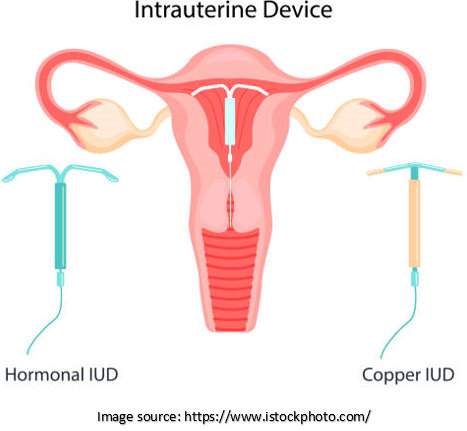Birth control is one area of your health where you might hear things that aren’t true because myths surround many facets of women’s health. Some myths are passed down from relatives, and others you might find on the internet.
There are many baseless myths about the effectiveness and safety of birth control, which may prevent some people from using the best birth control method.
At Budget Fertility Center, we provide effective and inexpensive contraception treatment in Mumbai. Depending on your health, plans to have children in the future, and whether you need protection from STIs, our team of experienced and skilled gynaecologist in Mumbai can assist you in making the best decision regarding birth control.
Several birth control methods, such as condoms, pills, intrauterine devices (IUDs), and other barrier devices, are available to those who want to prevent pregnancy. Knowing the facts can help you make better family planning decisions, improve your health, and preserve your fertility.
In this article, we examine the realities of various contraception options and dispel common misconceptions.
So, let’s dispel a few of these widespread birth control myths.
Myth #1: Birth control keeps STIs at bay
Although barrier methods, like condoms, can lessen the risk of getting sexually transmitted infections (STIs), they are not 100% effective. For example, areas of the genitalia that are unprotected by a condom may carry the Herpes virus.
Other birth control methods are ineffective in preventing STIs. IUDs, oral contraceptives, and surgical sterilization do not affect preventing infection. Ask your gynecologist doctor in Mumbai for advice on lowering your risk of contracting an STI if you use this method of birth control.
Myth #2: Hormonal birth control is the only available effective treatment
When someone says “birth control,” they frequently mean hormonal methods of contraception like pills, patches, implants, or intrauterine devices (IUD).
Hormonal contraception is only one choice, though there are many others. Some people opt not to use hormonal methods or are compelled to avoid them to choose from various alternative approaches.

Other birth control strategies can be just as effective as hormonal methods, if not more so. For instance, the pill is only 99% as effective as the copper intrauterine device (IUD), which has no hormones.
Myth #3: Birth control will lead to weight gain
Although birth control can have side effects, you shouldn’t be concerned about this one. There isn’t any evidence yet that birth control leads to noticeable weight gain. Women gaining weight has been reported anecdotally, but other lifestyle factors may be involved.
For example, many women start using birth control when their bodies are already undergoing significant changes. When weight gain does happen, it typically weighs less than 5 pounds.
Myth #4: Contraceptives cause cancer
An essential aspect of women’s health is cancer prevention. One of the birth control myths you can stop believing is that oral contraceptives can cause cancer.
Certain cancers, including endometrial and ovarian cancer, can be avoided with hormonal birth control. To further lower your risk, your doctor may recommend cancer screenings while you visit them for birth control.
Myth #5: Older women can stop using birth control
The menopausal transition can take years to complete. After the age of 40, your chances of getting pregnant decrease, but it is still possible.
You should discuss your fertility with your gynecologist to prevent a surprise pregnancy once you reach midlife. You will typically need birth control until you have gone at least a year without a period.
Myth #6: Contraceptives damage fertility
Birth control won’t harm your fertility, except for permanent sterilization techniques. With most hormonal birth control methods, you can stop using your preferred method and start trying for pregnancy.
Your body quickly resumes its normal reproductive processes, and most women can still get pregnant even after using birth control for many years.Another problem could be present if you are having trouble getting pregnant. Always cooperate with your doctor to find any issues affecting your fertility.
Myth #7: Occasionally, taking birth control breaks is a good idea
Some think the body needs a break from hormonal birth control methods. This may result from the perception that most medical professionals advise reviewing your birth control method every 10 to 15 years. However, this isn’t because your body requires rest.
Instead, every age has a different approach to birth control education. You may need to adjust your plan as your body and lifestyle change. For instance, after having the desired number of children, some women might be prepared for permanent birth control. Some women might want to switch to a type to manage their perimenopausal hormone fluctuations.
Myth #8: Some birth control methods are superior to others
If you ask a group in a room which birth control method, they believe is the best, you will probably get some dynamic responses. The fact is that every form of birth control has advantages and disadvantages.
The most crucial step is choosing the one you can frequently use that works best for you. For example, since they don’t have to worry about remembering to take a pill each day, some women prefer the simplicity of IUDs. Others like the birth control pill because they are used to it.
Myth #9: Contraceptive pills start working right away
If you begin taking the birth control pill within five days of the start of your period, you are probably covered. Starting the pill at any other time during your cycle will require you to wait at least a week before you can feel secure that you won’t become pregnant unexpectedly.
You are still permitted to have sexual relations during this time. Use an additional method of birth control, such as a barrier method.Finding the best birth control method for you may be difficult, even when you know the truth. Make sure to discuss your options with your gynecologist in Mumbai.
Myth #10: Hormonal birth control methods cause abortions
Specific pro-life organizations have widened their scope to include contraceptives, particularly hormonal birth control. Any birth control doesn’t cause abortion . This is so because ovulation, which prevents implantation, is prevented by all hormonal birth control methods. Pregnancy begins with implantation.
The majority of people can find a reliable method of birth control. Women may need to try different approaches or combinations to find a practical solution with the fewest adverse effects. Although all medications, including birth control, have some risks, the majority of myths about birth control’s risks are untrue.
Anyone considering a novel method of birth control can inquire with our seasoned gynecologist doctor in Mumbai at Budget Fertility Center about its effective usage.







